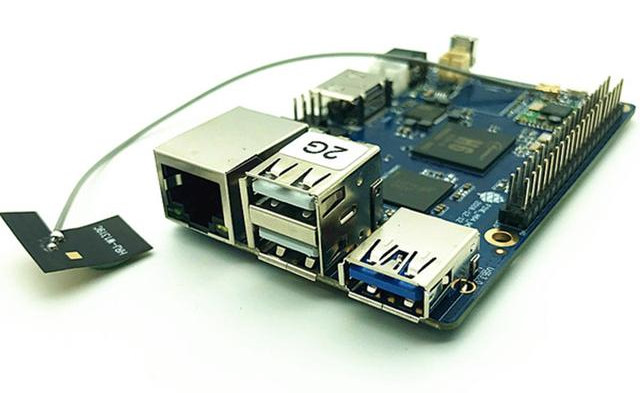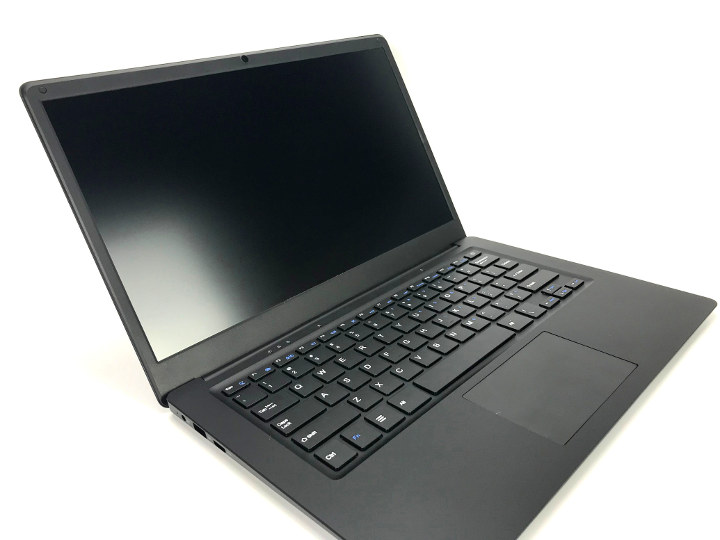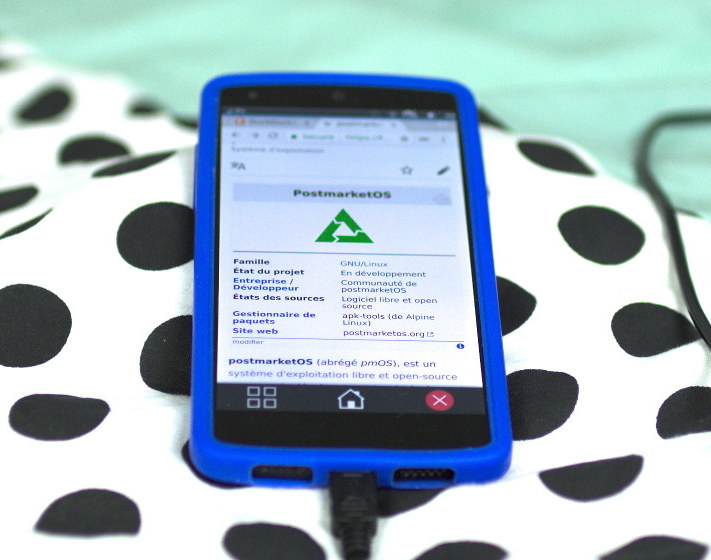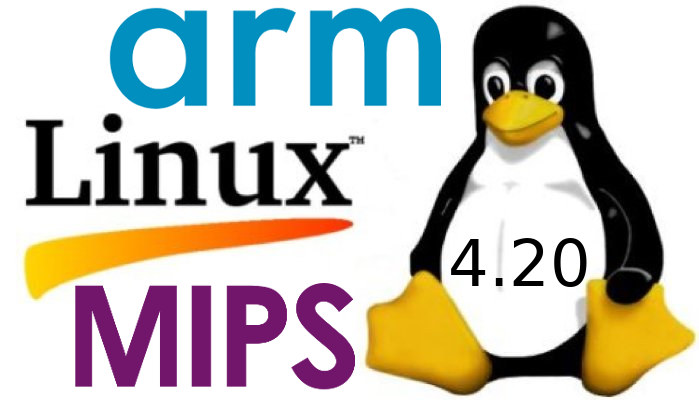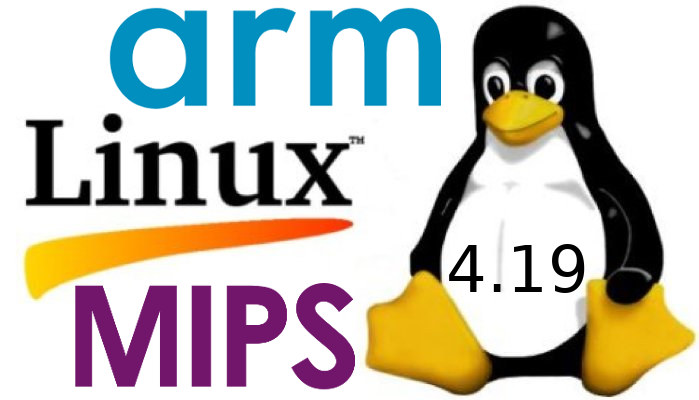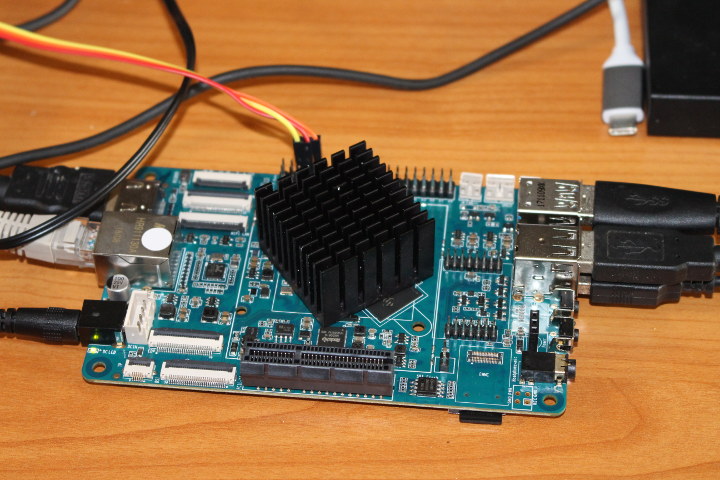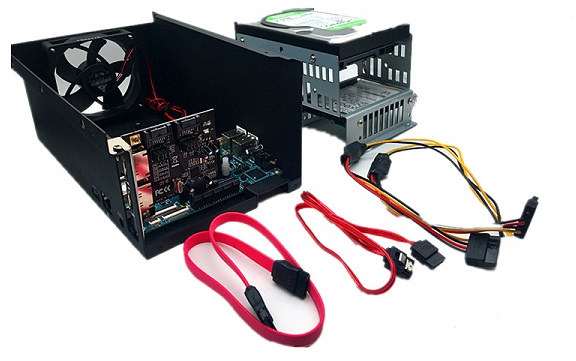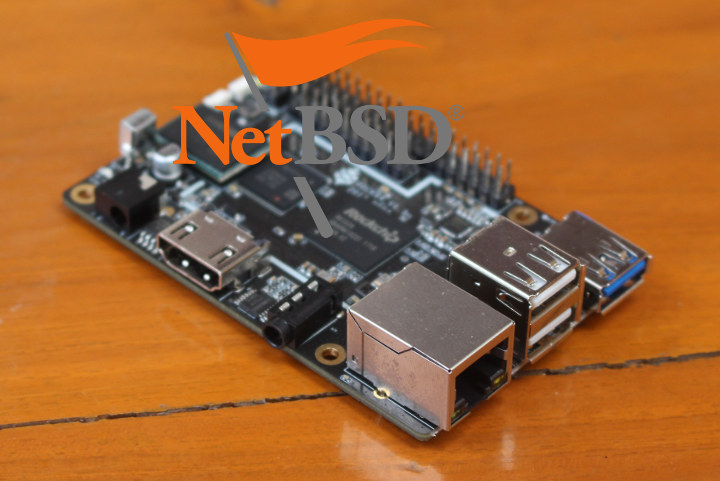Pine H64 development board was introduced about a year ago with an Allwinner H6 processor, 1 to 3GB RAM, Gigabit Ethernet, a USB 3.0 port, a PCIe socket, and more with the legacy Pine A64 form factor and price starting at $25.99 for the 1GB RAM version. However, Pine64 made a few announcements at FOSDEM 2019, and beside the upcoming Pinebook Pro Linux/*BSD laptop, the company also mentioned a new PINE H64 Model B, still based on Allwinner H6 processor, but instead following Raspberry Pi form factor also used by the company’s Rock64 SBC. The new board is still not available on the official Pine64 store, but Ameridroid is already taking orders for Pine H64 Model B for $38.95 (2GB RAM) and $48.95 (3GB RAM). Pine H64 Model B specifications: SoC – Allwinner H6 quad-core Arm Cortex-A53 processor @ 1.8GHz with Arm Mali T-722MP2 dual-core GPU supporting OpenGL ES 3.1/3.0/2.0/1.1, […]
PineBook Pro Linux / BSD Rockchip RK3399 Laptop Coming Up for $200
Pine64 announced the Pinebook laptop in 2016. The ultra cheap ($89 and up) laptop was based on Allwinner A64 quad core Cortex A53 processor coupled with 2GB RAM, 16GB storage, and a 11.6″ or 14″ display. It was never meant to be a replacement for your current laptop due to the low end specifications, but you could still use it to tinker with Arm Linux or *BSD, as a lightweight portable terminal, etc… Pine64 made several announcements in a single blog post right before FOSDEM 2019 where they’ll showcase some of their upcoming products including the Pinephone development kit that’s use to develop software for the upcoming Pinephone open source phone, PineTab *BSD/Linux-only tablet with Allwinner A64 SoC, and an 11.6″ display like Pinebook laptop, a retro gaming case compatible with Rock64 and Rock64Pro boards, an open source IP camera based on Allwinner S3L processor, Pine H64 Model B (Allwinner […]
postmarketOS Linux Mobile OS Supports Over 100 Devices
postmarketOS is a Linux operating system that was first unveiled in 2017, with the developers aiming to provide long term support in order to extend the life of existing phones. The operating system is based on Alpine Linux with touch-screen optimization, and the goal is to provide updates, including security updates, for at least 10 years just like you would get on a computer. The project was really getting started at the time, but now the community has provided an update for the first 600 days of development, and over 100 devices are now supported, mostly smartphones such as Google Pixel 3 XL or Motorola Droid 4, but also some SBCs, for instance, Pine A64-LTS and various Raspberry Pi boards. “Supported” means the 112 devices listed can boot postmarketOS, but the operating system is still considered to be alpha software, and for example, if you look at the features matrix […]
Linux 4.20 Release – Main Changes, Arm and MIPS Architectures
After Greg K-H handling Linux 4.19 release, Linus Torvalds is back at the helm, and released Linux 4.20 just before Christmas: Let’s face it, last week wasn’t quite as quiet as I would have hoped for, but there really doesn’t seem to be any point to delay 4.20 because everybody is already taking a break. And it’s not like there are any known issues, it’s just that the shortlog below is a bit longer than I would have wished for. Nothing screams “oh, that’s scary”, though. And as part of the “everybody is already taking a break”, I can happily report that I already have quite a few early pull requests in my inbox. I encouraged people to get it over and done with, so that people can just relax over the year-end holidays. In fact, I probably won’t start pulling for a couple of days, but otherwise let’s just […]
Linux 4.19 Release – Main Changes, Arm and MIPS Architectures
With Linus Torvalds taking a leave from the Linux kernel project, Greg Kroah-Hartman was the one to release Linux 4.19 last Sunday: Hi everyone! It’s been a long strange journey for this kernel release… While it was not the largest kernel release every by number of commits, it was larger than the last 3 releases, which is a non-trivial thing to do. After the original -rc1 bumps, things settled down on the code side and it looks like stuff came nicely together to make a solid kernel for everyone to use for a while. And given that this is going to be one of the “Long Term” kernels I end up maintaining for a few years, that’s good news for everyone. A small trickle of good bugfixes came in this week, showing that waiting an extra week was a wise choice. However odds are that linux-next is just bursting so […]
RockPro64 RK3399 Board Linux Review with Ubuntu 18.04 + LXDE
Let’s do one more RK3399 Linux review using Pine64 RockPro64 development board. After shortly checking out the hardware, I’ll test Ubuntu 18.04 “Bionic” LXDE on the board, test 3D graphics acceleration, video playback, USB storage and network performance among other things on the board. RockPro64 Board Unboxing The board came in a cardboard package, and the sticker made it clear I had received the 2GB LPDDR4 version. Even after FriendlyELEC NanoPi M4 announcement, Rockchip ROCKPro64 is still the cheapest RK3399 development board around, so it should come as no surprise that the board does not come with any accessories by default. Another way to keep the price low was not to include any built-in storage apart from SPI flash, so instead most people will either boot from micro SD card or an eMMC flash module both of which need to be purchase separately. Another cost-saving is the lack of built-in […]
Pine64 Launches a $45 Dual SATA NAS Enclosure for ROCKPro64 Board
ROCKPro64 is one of the most affordable Rockchip RK3399 boards, as you can purchase it for as low as $60 with 2GB RAM, and $80 with 4GB RAM. Pine64 – the company behind the board – also offers add-on boards such as a PCIe card to connect up to two SATA drives. The company has now leveraged the latter in their ROCKPro64 metal desktop/NAS casing specifically designed for ROCKPro64 boards, and capable of holding two 2.5″/3.5″ SATA drives.Key features of ROCKPro64 Desktop/NAS case: Compatible with ROCKPro64 boards only SATA – Accommodates either 2x 2.5″ SATA drives or 2x 3.5″ SATA drives or a mix of 2x 2.5″/3.5″ SATA drives Power Supply – 12V DC Dimensions – 232.4mm (Width) x 105.0mm (Height) x 145.2mm (Depth) The case also ships with 2 SATA data cables, and a custom designed power supply cable as shown below. However, the company also notes that ROCKPro64 […]
NetBSD ARM64 Images Now Available with SMP for Raspberry Pi 3, Some NanoPi Boards, and Pine64 Boards
NetBSD on Arm started in 2014 with the release of version 7.0, and last year device tree support was implemented and tested on some Allwinner H3 boards. But apparently, so far NetBSD only supported 32-bit Arm, with initial support for 64-bit Arm (ARM64) committed last April, but good progress has been made, and NetBSD ARM64 bootable firmware images are now available with SMP (multi-core) support. Eight different NetBSD ARM64 images can be downloaded: Generic NetBSD 64-bit image for Raspberry Pi 3 and NVIDIA Tegra X1 Two images for FriendlyELEC boards namely NanoPi NEO2 and NEO Plus2 boards Five images for the following Pine64 boards and hardware platforms Pine A64/A64+ Pine A64-LTS / Sopine with baseboard Pine H64 Pinebook laptop ROCK64 (ROCK64Pro not yet supported) The supported hardware matrix shows most features are supported, but there are still a few things missing such as GPU, crypto and MIPI CSI on all […]


